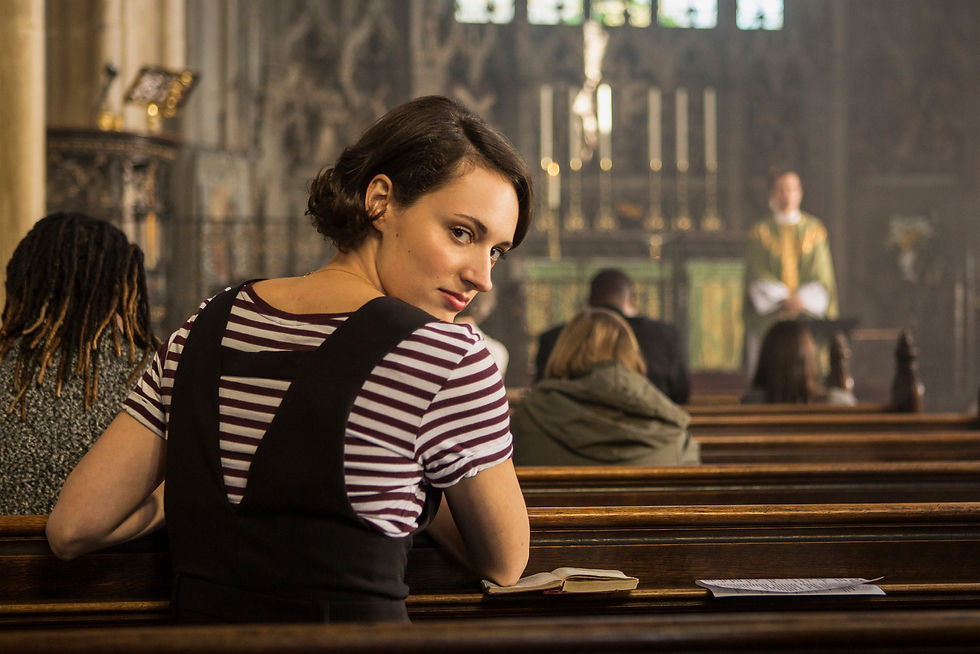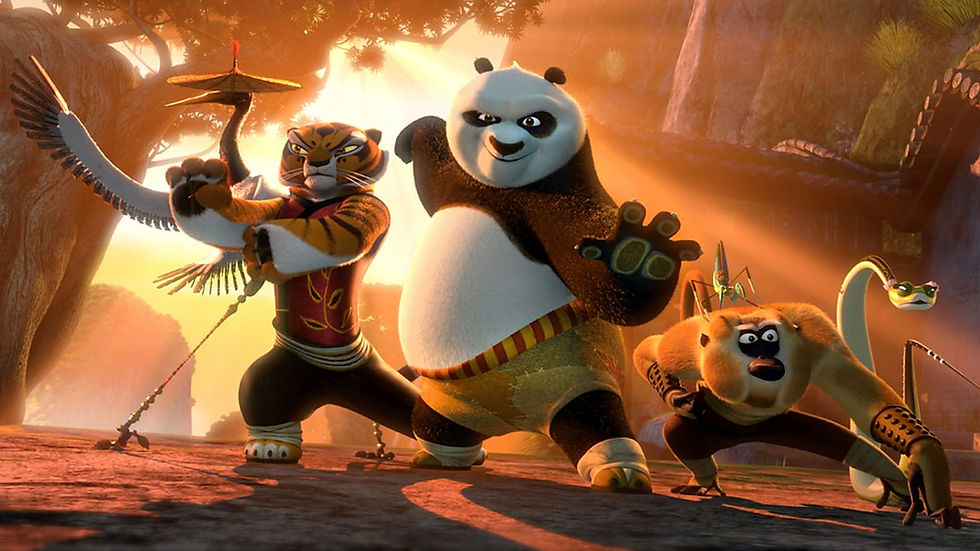The Fe(Male) Gaze
- Malana Lane-Topham
- Mar 21, 2023
- 4 min read
Laura Mulvey’s seminal essay ‘Visual Pleasure and Narrative Cinema’ (Mulvey, L. 1975) , theorising the presence of the male gaze in cinema is a landmark not only in feminist writing but also in film theory. She deconstructs the way that the patriarchal foundations of society have seeped their way into filmmaking, and particularly how women are portrayed in film.
Once you’ve read it, and understood it, it becomes impossible to not notice the ways in which the male gaze affects such a vast majority of films - whether it be the way the camera moves across the female body, deconstructing it as it goes; or the manic pixie dream girl trope, wherein the woman is less of a character and more of a glorified prop for the male character to work himself out against.
It can make watching and learning more about films disheartening as a woman - to see yourself in a thousand iterations, but none of them ever making up an entire person; a mosaic of body parts and an overly constructed idea of femininity in the way that it’s perceived by men. However, in retaliation to this, in recent years, more and more has begun to circulate about the ‘female gaze’.
It has yet to be as realised as the male gaze, and it was hard to pin down exactly where the term and earliest theorising first emerged - Zoe Dirse discusses the idea in reference to documentary filmmaking (Dirse, Z. "Gender in Cinematography". Journal of Research in Gender Studies), but in my short summary I will be focussing on narrative film - but the phrase ‘female gaze’ has seen a huge surge in use due to its circulation on social media. Its use varies from being used to describe films with sensitive, in-depth explorations of womanhood and female relationships, to being used to describe male characters who are attractive not only in appearance but in the way they interact with the female characters and the way they make the viewer feel. After reading through a few online articles and having a general sift through the term on social media, I’ve come to a personal conclusion that the female gaze encapsulates both the well-rounded portrayal of women and therefore, better understands what appeals to them when it comes to romantic interests, leading to more male characters to have characters with more emotional depth and sensitivity towards their counterparts, rather than their value being placed in more traditionally masculine areas such as physical strength.
Watching films that fall into the realm of being within the female gaze is refreshing not only do we get to see ourselves as fully realised characters; but for male spectators as well, it can give not only a much greater understanding of the way women function as people, but also the attributes that are most important to them - not physical brawn and machoism, but their ability to genuinely connect with and understand the female love interests on an intellectual and emotional level. With that being said, here’s a short list of films I personally think explore the concept of the female gaze:
The Love Witch (2016) - dir. Anna Biller

The Love Witch is a stylistic exploration of contemporary gender roles, through the aesthetic lens of 1960s campy horror films. Biller uses the idea of a ‘witch’ to explore men’s fears of women and deconstructs power dynamics in heterosexual relationships, as well as tension in female friendships that can be generated by the competitive nature created by patriarchal society that pressures women to prioritise how men perceive and value them and their ability to settle down and ‘keep’ their man.
The Virgin Suicides (1999) - dir. Sofia Coppola

Coppola’s spin on Jeffrey Eugenides 1993 novel of the same name explores the relationship between five sheltered sisters who struggle to break free from their parents' control over their lives. The film highlights how damaging the male perspectives are on them, as the boys in their lives fail to understand the depth of the girls’ suffering and distress, instead romanticising them from afar till their bitter end, when they stand on the street to watch the girls’ bodies be removed from their home after a group suicide pact.
The Watermelon Woman (1996) - dir. Cheryl Dunye

Dunye explores the erasure of black women’s contributions to the arts, lesbianism and multi-racial relationships. In a somewhat meta approach to the film, Dunye sings for the unsung black champions of cinema as well as for herself - a black, lesbian filmmaker, much like the character she plays in her own film. She highlights the intricacies of power dynamics and nuances to multi-racial relationships, as well as gently and humanely depicting lesbian relationships on screen - relationships that so often fall victim to being overly sexualised in many mainstream films. The Watermelon Woman is the first film to be directed by a black lesbian woman.
Fleabag (2016-2019) - created by. Phoebe Waller-Bridge

A TV series and not a film, Fleabag is too good to leave off of the list. Waller-Bridge explores a woman on the brink, who understands all too painfully that her body is her form of currency and agency in the world, and who struggles deeply with her feelings towards herself and the people around her - particularly her sister Claire. Their relationship is explored to heartbreaking depths, with both women struggling with their own issues as well as their relationship with each other in a way only sisters do. Fleabag - the audience-given unnamed protagonist’s name - also mourns the loss of both her mother and her best friend throughout the series, unsure of what to do with the love she still holds for them, and eventually falls in love with a priest - the only man who ever really pays her genuine attention.
Due to the short length of this list, I will also recommend the list of 100 overlooked films directed by women on the BFI's website for further recommendations - https://www.bfi.org.uk/sight-and-sound/female-gaze-100-overlooked-films-directed-by-women







Comments